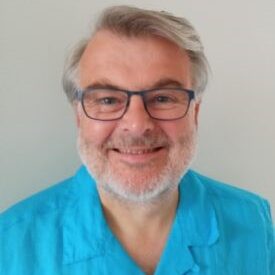Pre-conference Masterclasses - Sunday 6th November 2022
This year, ASPiH are delighted to offer a series of Masterclasses, which will see some held virtually and some face-to-face at either the conference venue or at Birmingham Medical School.
The cost to attend a Masterclasses will be:
ASPiH Member - £100
Non-Member - £110
Student - £50
All Things Being Equitable” – NOT!
A virtual Masterclass, taking place Zoom.
10am-4pm GMT
Key Content/Learning Objectives - Simulation & Tackling Inequalities & Discrimination Experiences in Health Services
Facilitator - Professor Stephani Hatch - Professor of Sociology & Epidemology, Institute of Psychiatry, Psychology & Neuroscience (IoPPN), King's College London
Stephani Hatch is a Professor of Sociology and Epidemiology leading the Health Inequalities Research Group at the Institute of Psychiatry, Psychology & Neuroscience, King's College London. She has over 25 years of experience delivering interdisciplinary health inequalities research with an emphasis on race at the intersection of other social identities. Professor Hatch leads the Tackling Inequalities and Discrimination Experiences in Health Services (TIDES) study, funded by a Wellcome Trust Investigator’s Award, that was expanded in 2020 with ESRC funding as part of UKRI’s rapid response to COVID-19, in part, to produce more immersive training resources for health and social care staff and managers. Professor Hatch also currently co-leads the Marginalised Communities and Mental Health programme within the ESRC Centre for Society and Mental Health. Professor Hatch integrates collaborative approaches to knowledge production and dissemination, action and outreach in training and research through the Health Inequalities Research Network (HERON), which she founded in 2010. She also leads equality, diversity and inclusion initiatives and has national and international advisory roles in health and volunteer and community sectors.

Influencing the inclusivity agenda
An in-person Masterclass, held at Birmingham Medical School
10am-4pm GMT
Key Content/Learning Objectives -
The proposal is to develop thinking around educational climate and influencing meaningful and sustainable change. Much focus in the SP community has been on recruitment (team diversification) but in current times, arguably, there is a remit to go beyond that to consider the wider – and evolving - educational culture in which we collectively work. To that end the Birmingham offering will cover three key themes. Delivery will be interactive, including medical humanities academics, SP educators and SPs, with both plenary and workshop delivery methods.
- Theme 1 – the service provision need (impact on learning)
Considering the demographic of our teams – ethnicity, disability, learning difficulty, gender re-assignment, eg, in alignment with 2010 Equality Act. Discussion on representing the patient population authentically – in terms of people and scenarios.
- Theme 2- the worker’s need (impact on working individuals SPs, ACEs, MTUs and GTAs)
Considering how the role play team feel; are our materials accessible eg (reasonable adjustments); how are they treated on jobs, do they feel their identity individually and as an SP community is recognised, and supported?
- Theme 3 – the context, curricula and culture change need (impact on clients/stakeholders/decision-makers)
Considering how we as providers work with clients and stakeholders to influence and change inclusivity agendas. Where can we add impact, advice and influence?
We anticipate the workshops will be multi-disciplinary, including clinical, non-clinical, academic, professional services, training and SP participants. In the spirit of interaction sessions will be task orientated, with outcomes that can be shared transferred to the workplace.
Facilitator - Dr Connie Wiskin with colleagues from Interactive Studies Unit and Institute of Clinical Sciences, University of Birmingham
Design a Human Factors Approach to promote Equality, Diversity and Inclusion (EDI) both in and with Simulation, and analyse the lessons learned in the process.
An in-person Masterclass, taking place at the conference venue, Hilton Birmingham Metropole
10am-4pm GMT
Key Content/Learning Objectives
Human Factors approach based on the CIEHF Document: “How HF can enhance delivery of EDI
Using a Human Factors approach in group work to address:
- Human Factors approach to promote, establish, and measure EDI in Simulation.
- Simulation as a tool to promote and establish EDI in the workplace.
- Introduction to decolonising Medicine.
- Gather intelligence from the process to develop principles for HF Design for Simulation.

Facilitators:
Dr Michael Moneypenny - ASPiH President and Educational Coordinator at the Scottish Centre for Simulation and Clinical Human Factors
Dr Michael Moneypenny became President of ASPiH in November 2020.
Michael is particularly interested in patient safety and the role of human factors ergonomics in improving system performance and personal wellbeing. He is the Associate Postgraduate Dean for Skills and Simulation at NHS Education for Scotland. He is also an educational coordinator at the Scottish Centre for Simulation and Clinical Human Factors where he facilitates anaesthetic and “train the trainer” courses.
Michael is dad to three girls and a boy, he spends a considerable amount of time entertaining (and being entertained by) them. He likes to potter around the garden and he and his wife spend time walking, reading and catching up on their sleep.

Andy Buttery - HEE KSS Regional Simulation & Human Factors Project and MSc Simulation Pathway Lead, CIEHF London & S East Regional Network Lead
After 20 years clinical work as an Operating Department Practitioner (ODP), an increasing interest in education and improvement led to a full-time educator role as Simulation Specialist in 2004.
A Human Factors Editor for the European Simulation Conference (SESAM) in 2014, 2015 and the European subject expert for the International Certification as Healthcare Simulation Educator (CHSE) award.
Co-designed and delivered a workshop on Human Factors Education for the UK Clinical Human Factors Group in 2012.
I have (more or less) lapsed qualifications as a RC(UK) ALS Instructor and GIC Faculty; ACLS Provider; TeamSTEPPS Master Trainer; Simulated Patient Framework SP and SP Trainer; CHSE; and co-author of a few papers.
Now Regional Simulation and Human Factors Project Lead for HEE KSS, my role is largely managerial and developmental, although I still manage to sneak out and teach on occasion. I am confident that Simulation-Based Education will continue to evolve and provide elegant, effective solutions to challenges in health and care.
Dr Musarrat Maisha Reza - Senior Lecturer Biomedical Sciences
Hari Sewell - Director – HS Consultancy
